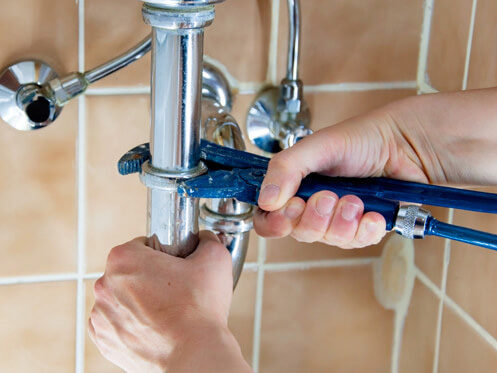What messages would plumbers hope consumers fully understand? Here are some basic plumbing tips plumbers suggest that can save you money and protect your health.
- Can I put scraps down the kitchen drain? Yes, only if you have a good quality garbage disposal. Not a noisy cheap disposal, but one that grinds food fine. Then scraps can be put down the drain while using plenty of water to carry them away. Of course, it’s still best to scrape dishes into a garbage can, but that’s not always possible or convenient.
- Is Reverse Osmosis the best answer for drinking water? Yes, a Reverse Osmosis system removes 28 of the most dangerous chemicals from your drinking water and you can eliminate unhealthy plastic water bottles. Something scarier than a Halloween horror movie is the serious health issues caused by unregulated plastic water bottles. Direct sunlight increases risks even more from leaching plastic.
- Is that unused plumbing fixture safe? No, homes having a plumbing fixture that does not get used but is hooked up to water piping becomes the breeding ground for microbial and bacterial growth. Water in the piping near the fixture becomes stagnant and Chlorinated water does not mix well with it. Remove or cap off any unused plumbing fixture water piping over two feet in length to reduce risks and cap off sewer piping drains. If nothing else, run water weekly through those fixtures.
- Are chemical drain cleaners safe? No, those drain cleaners can burn plumbers and damage your piping. Even a few splatters drop, or incidental contact can damage layers of skin. The commercials may look impressive, but blockages do not magically flush away leaving a shiny pipe. Blockages are removed better by cabling.
- Does it make sense to cable my main sewer when it plugs each year? No, because it will continue plugging and increase risks for damages from a sewer backup. Costs will just increase. Once identified, there is no good way to avoid those costs since defective sewers must be disclosed during real estate transactions.
- Why do some stores sell plumbing fixtures and faucets cheaper? Odds are the quality is not the same and warranty is only for replacement. If the discount faucet fails, you may be forced to sue the factory. Plumbers typically can’t warranty fixtures and faucets purchased elsewhere. They can warranty quality fixtures and faucets purchased through them at their supply vendors. Lincoln Winnelson at 700 Pioneers and Briggs at 1741 Cushman Drive have impressive showrooms open weekdays from 9:00 to 5:00. Feel free to visit as a guest of John Henry's Plumbing, Heating, Air, and Electrical or your licensed plumber.
- Are your water bills suddenly high? Odds are the toilet is leaking water past the toilet tank flapper and slowly seeping unnoticed into the toilet bowl. Check for leaks by putting food coloring in the toilet tank. If the food coloring seeps into the toilet bowl the odds are the toilet needs some adjustments or parts replaced. Before making repairs, consider a taller elongated toilet that will be more comfortable.
- How long do braided washing machine hoses last? Manufacturers and insurance companies recommend replacing standard washing machine hoses every five years. Braided hoses typically last longer than the standard black hoses, but they still need to be replaced every seven years.
Sewer mains typically plug in for three basic reasons. (1) The sewer was not installed properly. (2) There are tree roots in the sewer. (2) The sewer taps at the city main are broken. A sewer camera can pinpoint the damages and reduce the cost of repairs; it’s well worth the investment to fix it the first time the sewer backs up. It makes more sense to locate defects and fix them. Financing is typically available!
9. Does your handyman have insurance? Licensed plumbing contractors are required by the City of Lincoln to maintain liability insurance. It’s better to be fully insured if your home burns down or is flooded from poor-quality plumbing repairs. Using handyman services, friends, and relatives to make repairs can be risky.
10. Are plumbing permits really necessary? Improperly installed plumbing caused the SARS virus that struck over 8,000 people in 2003. It barely missed the United States. Licensed plumbers in our community are required to take proficiency tests. It’s better to be safe than sorry!
Plumbers can have unnecessary challenges and this article may make their jobs easier. Thanks for taking the time to read it!

